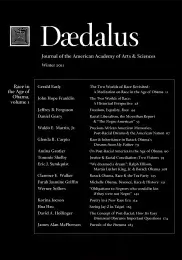Poetry in a New Race Era
A growing literary arts movement is shaping discourses about youth and youth culture. With the historic election of President Obama serving as a departure point, this essay calls attention to poetry and the new race era to offer insights into the power of writing. For many youth who write in their own contexts or compete in the Brave New Voices Poetry Slam Festival, for example, such themes as voice, identity, citizenship, and leadership in the twenty-first century reveal how language is used to expose social realities often steeped in the margins. What do these themes suggest about the possibilities of poetry in a new race era? Indeed, what do they convey about inhabiting a new race era? Examples that tackle these themes are included in the essay.
The buzz is on. It is the beginning of summer and the anticipation is thicker than the layer of smog above the skyline. More than five hundred youth poets from across the United States and around the world are gearing up for the 13th Annual Brave New Voices (BNV) International Youth Poetry Slam Festival, to be held in Los Angeles, California, in July 2010. I can feel the excitement in the city. I imagine intimate words bouncing off the walls inside the Saban Theater on a night cohosted by rapper and actor Common and actress Rosario Dawson. Who knew the convening power of poetry could reach so far? I remember my days as a novice educator, when poetry was confined to classrooms and, during open mic nights, to select cafés and clubs.
More than fifty thousand youth poets converged in local and regional competitions to determine who would constitute the representative teams that moved on to the July nationals. Once in Los Angeles, these teams faced rounds of competition during the weeklong BNV festival to narrow the field even further. In the end, four teams– Albuquerque, Denver, New York, and the San Francisco Bay Area–battled onstage for this year’s crown of new grand slam champion.
While the competition remains an integral part of the festival, the chance to consider the themes that youth participants tackle in their writing– voice, identity, citizenship, and leadership in the twenty-first century–is equally important. What . . .
